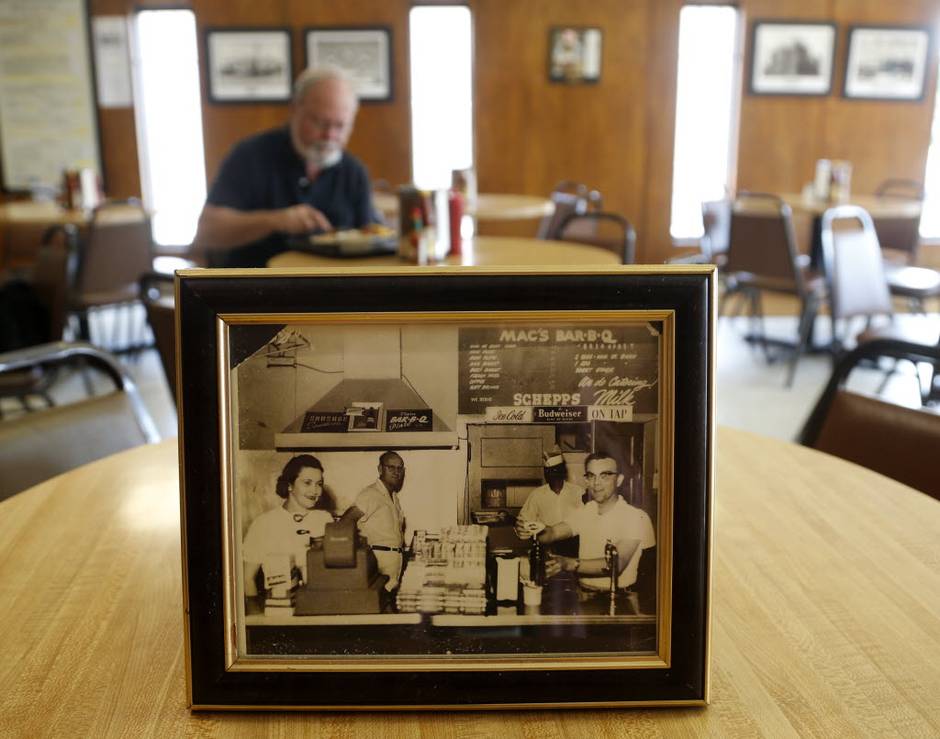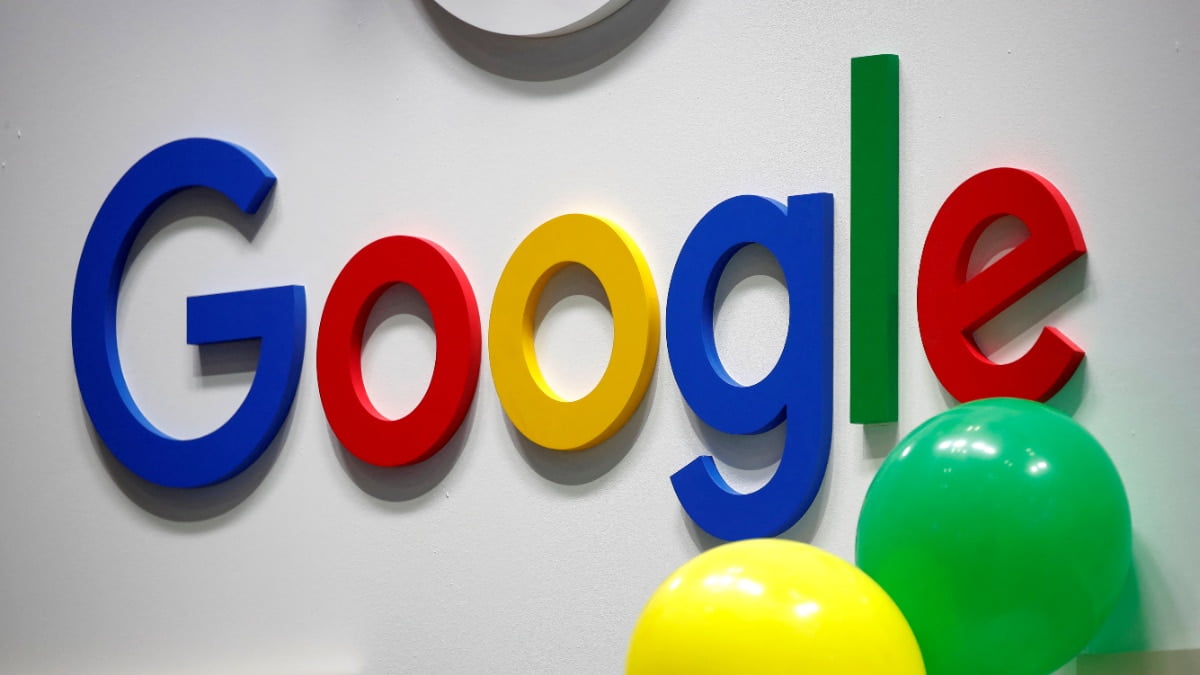Billy McDonald never wanted to go into the barbecue business. Like many sons who try to reject their father’s calling, in the 1970s he tried to get as far away from the pit as possible — to engineering and architecture school at Texas A&M, to be specific. No waking in the dark every morning to feed the fire; no going home every night smelling like sweat and smoke. He wanted to design things, build things. His own things.
Instead, in 1981 and ’82, he found himself designing and building the third — and, likely, final — home of Mac’s Bar-B-Que, owned and operated by his father and mother since the mid-1950s.
“I had to come back into the family business because I couldn’t get a job, no one was hiring,” McDonald said Wednesday, talking to my parents and me at a table in the Main Street joint because there was no one else to serve during what used to be the lunch-hour rush.
The restaurant looks just as it has since I had my first bite of barbecue there as a little kid — nothing trendy, nothing fancy, just a few round tables surrounded by brick and wood paneling. Except, now, the customers who used to swarm the joint are gone.
Which is simply unfathomable. This is a city where it’s big news when a relatively new barbecue joint closes for a couple of weeks so it can expand. Where the founder of Chili’s recently opened a barbecue theme park. Where everyone’s a barbecue expert. Yet, in this case, a link to Dallas’ culinary history now struggles to fill a single table during lunch.
 Straight out of A&M, Billy went to work for his dad, Bill McDonald, who’d been in the barbecue business since 1949, selling chopped-beef sandwiches and bottled soft drinks out of a tin-roofer on Young and St. Paul streets in downtown Dallas. That used to be as fancy as barbecue got in this town, back when smoked meat between slices of white bread was a working-man’s delicacy sold for a few pennies in tiny joints. In 1955, three years before Sonny Bryan’s opened on Inwood Road, Bill Sr. moved to Main Street and Exposition Avenue, then, in 1968, to 408 Exposition, where it stayed until the McDonalds opened a carbon copy of the Expo location on Main in 1982.
Straight out of A&M, Billy went to work for his dad, Bill McDonald, who’d been in the barbecue business since 1949, selling chopped-beef sandwiches and bottled soft drinks out of a tin-roofer on Young and St. Paul streets in downtown Dallas. That used to be as fancy as barbecue got in this town, back when smoked meat between slices of white bread was a working-man’s delicacy sold for a few pennies in tiny joints. In 1955, three years before Sonny Bryan’s opened on Inwood Road, Bill Sr. moved to Main Street and Exposition Avenue, then, in 1968, to 408 Exposition, where it stayed until the McDonalds opened a carbon copy of the Expo location on Main in 1982.
In time, of course, Billy grew to love the old man’s business — the customers most of all. “They’re like family,” he told me. “I’ve seen three, four generations come through here, like your grandfather, your dad and you.” My 72-year-old father’s still a regular. Has been since he was a boy.
But in recent months, McDonald’s family has disappeared. On Wednesday, between 11 a.m. opening and 1:30 p.m., he and an employee, Deb Schultz, served six people from the meat-cutting counter, three of whom were named Wilonsky. It’s been like this for close to a year.
Long before barbecue became a thing — before waiting in line for meat became a badge of honor, before customers demanded that their brisket taste like a campfire, before a Louie Mueller apprentice moved to Paris with a made-in-Mesquite smoker — there was a Mac’s Bar-B-Que. It always got great reviews. And even now, it racks up the occasional Yelp rave.
But the institution, a place Texas Monthly barbecue editor Daniel Vaughn once included on his list of Texas’ top 10 smoked-meateries, is in danger of going the way of Club Schmitz, the Mecca, the Prince of Hamburgers, Vincent’s and other Dallas joints tossed into the overflowing dustbin of local history.
 And when that day comes, Vaughn said Wednesday from a South Carolina expedition, we will lose “one more of those joints that made Texas barbecue what it is. If you’re talking about it from the perspective of an employee leaving a company, we’re losing a lot of institutional knowledge. We’ll be losing a piece of Dallas history, not only the place but having the guy you can talk to about that history. I love Mac’s. I’ll be sad when it’s gone.”
And when that day comes, Vaughn said Wednesday from a South Carolina expedition, we will lose “one more of those joints that made Texas barbecue what it is. If you’re talking about it from the perspective of an employee leaving a company, we’re losing a lot of institutional knowledge. We’ll be losing a piece of Dallas history, not only the place but having the guy you can talk to about that history. I love Mac’s. I’ll be sad when it’s gone.”
In truth, the demise of Mac’s is inevitable: McDonald, now 62, put the place up for sale a year ago — his third attempt in 12 years. When we noted the for-sale sign last summer, McDonald began getting calls from people asking when his last day would be. He told them he had no idea, because he expected the sale to take months, maybe years. He’s asking a lot for two lots — more than $1.6 million, which he says is more than fair given the high price tags affixed to other properties along the corridor between Deep Ellum and Lakewood.
“Maybe they think I’m not here anymore,” McDonald said. “They don’t realize I’m still here and probably will be for another two, three, four more years. It’ll be a slow sale.”
 The longer we talked, the longer the list of reasons for the slowdown got. There’s the location, for starters — halfway between destinations, but itself not much of one. McDonald said each time he’s tried to add some signage to his otherwise plain storefront, the city “is on your butt quicker’n hell.”
The longer we talked, the longer the list of reasons for the slowdown got. There’s the location, for starters — halfway between destinations, but itself not much of one. McDonald said each time he’s tried to add some signage to his otherwise plain storefront, the city “is on your butt quicker’n hell.”
He also refuses to tweet or run a Facebook page, insisting he and Schultz don’t have the time to do social media. Billy’s dad, who died on Christmas Eve 2000, didn’t advertise either, except during races at Devil’s Bowl Speedway.
McDonald also doesn’t make what Vaughan calls “Instragram-worthy barbecue,” like, say, Pecan Lodge, which moved to Main in Deep Ellum from the Dallas Farmers Market a couple of years ago and still has a line out the door from opening till last call. Vaughn means that as a compliment: There’s nothing fancy about the hickory-smoked brisket at Mac’s; McDonald doesn’t even salt it.
“If I go to Mac’s, that’s what I want — a chopped sandwich covered in sauce,” Vaughn said. “I’ve told Billy to his face if he put a little salt on his brisket, it could be better. But he’s steadfast: It’s hickory smoke, and that’s all it needs. And these days, a lot of barbecue fans are looking for more than just hickory smoke.”
McDonald tried to keep up with the competitors siphoning off his business; he tried the rubs and smoking the meat over low heat, but the regulars revolted. Besides, he said, it’s not his thing.
“You’re not supposed to taste barbecue two days after you ate it,” McDonald said. “I do what my dad did and what your grandfather liked.”
But I pointed to the empty dining room and asked how much longer he can keep doing this. He shrugged.
“I’m actually doing a part-time job now,” he said. “I’m doing part-time electronics repair at night — ham radio equipment, mostly, and amplifiers.”
Vaughn shared the numbers: Barbecue chains are on the rise, according to one food-service market research company. “But the BBQ joint is going away.”
Mac’s is an important part of Dallas’ culinary history. But it’s not history. Not yet.
[Source:- Dallas Morning News]






